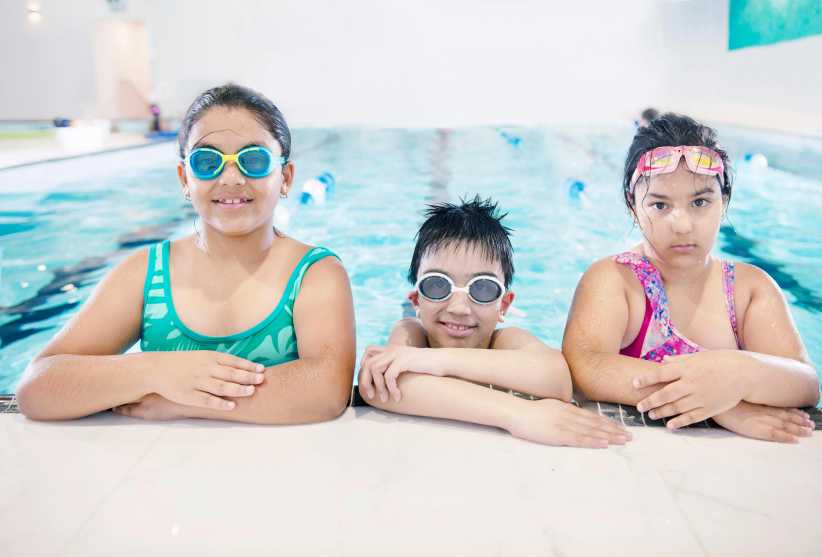As adults, it may be humorous or perhaps mortifying to think back on our adolescent dating experiences. And as parents, it may be a process that we dread our children having to navigate. Starting to date is difficult for many reasons, but certainly the challenges can be exacerbated for adolescents with special needs. It may be helpful to first consider what comprises dating for kids these days.
When I ask the college students that I teach about dating, the response is often a lovely mix of blushing, grinning, and lots of inconsistency. This may be a good question to ask our children. A report by Child Trends Data Bank (2013) broadly defines dating as “spending time with current or potential romantic partners.” Within this context, specific challenges for adolescents with special needs will be discussed.
A teenager with a past or present medical illness may have experienced changes in her body that perhaps rise to significance with the onset of dating. It is not uncommon for adolescents to experience body-image concerns at this time centered on scarring, weight or other effects that may be the result of illness or treatment. Similarly, adolescents with special learning needs may also feel uncomfortable with how they might be perceived by dating partners. For example, a teenager with learning difficulties may worry that it will be hard to focus on a date or respond in the “right” way during conversation. Overall, adolescents with special needs may already face diminished self-esteem generally or related to specific factors; dating can feel more daunting because of this, but it can also influence self-esteem depending on the results.
I remember very well one of the first times I worked with a patient who expressed such concerns. He had a long history of illness and expressed fears that friends and girls would reject him if they knew about his special needs and his ongoing illness-management requirements. And so, he didn’t share any of this, but then on top of feeling anxious, he had trouble adhering to his treatment management when he was with peers. To his great chagrin, we role-played how to explain his needs to others, and we came up with ways to practice, such as first telling his closest friend. Years later, it makes me blush and grin when I hear about his successful dating life.
As adolescents consider this new type of relationship, it can be anxiety-provoking. Those with special needs have an increased risk for anxiety and depression; therefore the “stressor” of dating can certainly contribute to increases or the development of such symptoms. Sometimes, special needs are associated with a sense of being “behind” other children developmentally, perhaps related to the special need or because the child has missed opportunities to engage with peers socially. In this case, it may be especially anxiety-provoking if peers are showing a readiness to date that isn’t shared. At a more basic level, they may feel like they don’t know how to date. In these circumstances, parents and other loved ones can help by sharing information as well as their own experiences (although we may have to figure out ways to embed Facebook, texting, etc., into our stories to be relevant).
And of course parents of children with special needs may be anxious about this as well. Some literature suggests that parents may find it difficult to grant their special needs children independence. It can be so hard to imagine your special needs child in many situations, much less dating! One of the best ways that we can help is to support his interest in dating and convey our happiness rather than fears, which could amplify his own. But, it is likely that many concerns parents have will be echoed by their children, and together families can prepare for such things. For example, if you are supposed to take medication while you are out, how will you make sure to do so? If your date asks why you have a tutor, how might you explain it? Such dialogue and practice may get a few eye-rolls, but will likely go a long way toward reassuring you and your child.
It is an extremely exciting time for an adolescent with a special need to realize that he is not different than his peers as he starts to enter the dating scene. As in so many aspects of parenting, the conversation, support, and preparation that we can offer during this time will be instrumental — even if it means revealing some of our most awkward, mortifying moments in a whole new light.
Dr. Rachel Annunziato is an assistant professor of psychology at Fordham University. She has been conducting research and treating patients in a medical setting for more than a decade. Dr. Annunziato’s research centers in pediatric psychology, health behaviors, and the transition to adulthood — with an eye toward health and improving quality of life. She has published more than 50 peer-reviewed publications on these topics and mentored dozens of students training in clinical psychology.
Citations:
Child Trends Data Bank. (2013, February). Dating. Retrieved from www.childtrends.org/?indicators=dating.
Chorney, D. B., & Morris, T. L. (2008). The changing face of dating anxiety: issues in assessment with special populations. Clinical Psychology: Science and Practice, 15(3), 224-238.














